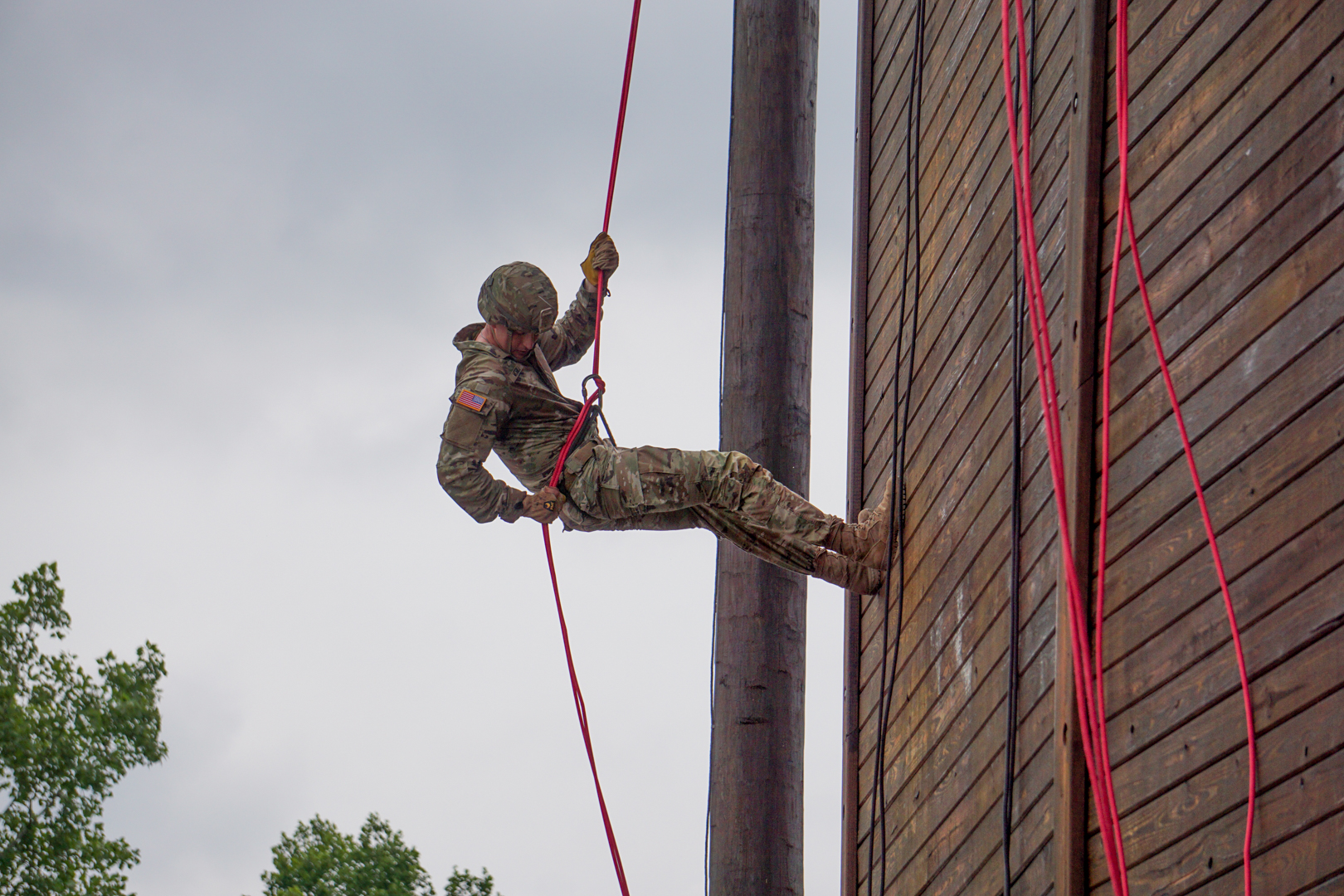By: Madison Thompson
FORT KNOX, Ky. – Ranger candidates completed the Combat Water Survival Assessments June 8 during Cadet Summer Training in preparation for Ranger School. CWSA, also called Combat Water Survival Test is comprised of three different tests which all must be passed to complete training.

A Ranger Candidate swims 15 meters, clothed and with some gear, while holding his rifle out of the water, as part of the PWST at Fort Knox, Ky., on June 8, 2017. (Photo by Nicholas Bafia)
“We did a 15-meter swim test with keeping our rifle above the water. We did a 3-meter blind drop. So, we had a blindfold over us and we had to hold our rifle out and jump off of the high dive. Then we had an equipment ditch. So, we had our LBE (Load Bearing Equipment) and rifle, and jumped in the water. Then, while you’re under the water, you have to take everything off, swim to the side, and then get out of the water,” explained 2nd Lt. Austin Musgrove, Embry-Riddle Aeronautical University.
In the pool at Gammon Total Fitness, Ranger candidates lined the edge of the pool, preparing themselves. The pool was set up in three stations for maximum efficiency.
The 15-meter swim testing is done in full uniform including boots as well as LBE, which is comprised of a vest and two canteens full of water, and a rifle. Any stroke was allowed as long as the candidates reached the pool’s edge.
Candidates ascended the high dive with a rifle and a blindfold after swimming 15-meters.

A Ranger Candidate participates in the Confidence portion of the RWST, which has blindfolded Candidates step off a high-dive into a pool and then swim to safety with their harness and prop weapon. The training took place at Fort Knox, Ky., on June 8, 2017. (Photo by Madison Thompson)
From there, candidates were instructed to put on the blindfold, hold the rifle out straight and walk off the edge. As they walked off the edge, they were required to sound off by shouting ‘Ranger’ before hitting the water.
CWSA is a requirement to enter Ranger School. The preliminary testing held at Fort Knox, Kentucky, serves multiple purposes.
“(It’s) to get you comfortable with the water and to make sure that you can survive for a short period of time if you’re ever stuck out in the ocean. So that you’re not scared of the water,” said 2nd Lt. Terell Hurdle.
What Ranger candidates took from this training varied from person to person.
“I think they’re just making sure we are able to handle ourselves in the water without fear and without possibly drowning,” stated 2nd Lt. Joshua Davila.
“I think just staying calm and remembering what you practiced and how you practiced and that’ll get you through the course,” said Hurdle.
Another candidate took something different from training.
“Not being afraid. When I first got on the high dive, I had that little bit of anxiety but I stowed that away and jumped off … because Rangers don’t quit. They also don’t allow people to see fear, because if you show fear people then will take advantage of you,” said Musgrove.
CSWA is a continuation of training Ranger candidates received at Fort Knox, Kentucky. With more training ahead, the future Rangers lead the way to success.




